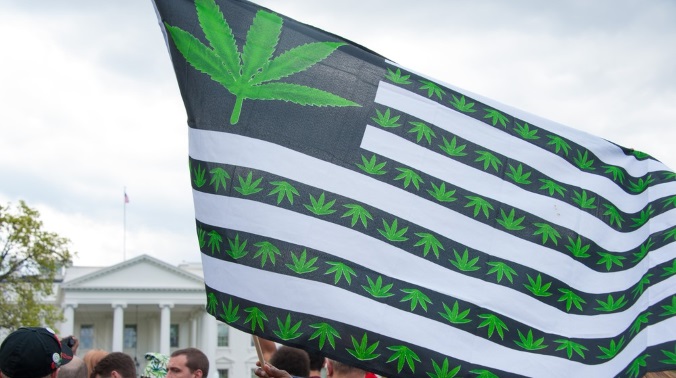In August 2016, the U.S. Drug Enforcement Agency took a daring step toward lowering long-standing barriers on cannabis research by making it easier for academic and private sector researchers to obtain cannabis for study. By the end of August 2017, just a year later, the DEA received 25 applications from institutions hoping to take advantage of this new opportunity to study the medical benefits of cannabis — but because they require the approval of a Department of Justice that remains deeply opposed to cannabis, not a single one has been approved.
The DEA Changes the Rules on Cannabis
To date, 29 states and the District of Columbia have legalized marijuana for medical purposes, making it available in clinics and dispensaries with a doctor’s recommendation. But the federal position remains firmly fixed; along with heroin, LSD, ecstasy, and magic mushrooms, marijuana remains a Schedule I drug, deemed highly addictive and lacking in any medical benefits.
Marijuana’s lack of medical benefits has been challenged by a long list of academic and private sector studies revealing that compounds in cannabis can relieve the symptoms of a variety of chronic pain conditions, anxiety, depression, and the nausea of cancer treatments. It may also activate immune responses to help the body fight inflammation and cancer.
But those studies have done little to challenge the government’s stance on marijuana. Because the federal position on marijuana is that it has no medical benefits, the availability of marijuana for legitimate research in federally funded studies has also been severely limited. That’s why the DEA’s sudden decision in August 2016 to open up applications for growing and using medical marijuana was hailed at the time as a “new era in medicine.”
Before the DEA’s decision, any facility growing marijuana for research had to have a contract from the National Institute on Drug Abuse (NIDA) to grow limited amounts of select strains. Scientists had to go through a complex series of steps to get permission to access those strains. Furthermore, often the strains made available weren’t appropriate for every study — and some researchers complained that they had been contaminated with mold, fungi, and other toxins.
The DEA’s August 2016 decision was intended to end that monopoly. Under the new rules, private sector companies and academic institutions could apply to grow their own marijuana. Over the course of the following year, the DEA received 25 applications to do just that — but that’s where the process stopped.
The Justice Department Blocks DEA Research Applications
Final approval for the applications made to the DEA must come from the Department of Justice — a department now headed by the notoriously anti-cannabis Attorney General Jeff Sessions. But to date, no action has been taken on any of those applications, a move that appears to reflect Sessions’ determination to combat the rapidly growing, and increasingly mainstream, marijuana industry.
Even as the applications it supported languished in the Department of Justice, the DEA itself appeared to take another step back from expanding access to cannabis for research.
The DEA Limits Production of Marijuana for Research
In early August 2017, the DEA announced plans to reduce the amount of marijuana allocated to federal research for 2018. The agency called for a reduction in the aggregate production quota (APQ) of all Schedule I drugs for research purposes, not just for marijuana. That makes less marijuana available for research purposes while permits to produce more remain stalled, effectively restricting marijuana research even more.
The government’s hard line on marijuana’s lack of medical benefits also extends to putting up roadblocks for studies already planned or underway. That position directly affects the availability of cannabis products for the relief of pain and the symptoms of PTSD affecting large numbers of veterans, who typically obtain health services through the Department of Veterans Affairs.
Federal Policy Jeopardizes Current Research
Current policy prohibits doctors and other professionals in Veterans Administration hospitals and clinics from discussing medical marijuana as a treatment option — and from referring patients to dispensaries in states where those facilities are legal. That policy is now jeopardizing the first large-scale controlled study on the benefits of smoking marijuana for the relief of PTSD in veterans.
The study, conducted in Phoenix by researchers from the Multidisciplinary Association for Psychedelic Studies (MAPS), seeks to enroll veterans experiencing treatment-resistant PTSD. But, because the Veterans Hospital in Phoenix is not able to discuss the study with patients or refer them to the research team, the study is stalled as researchers appeal to Secretary of Veterans Affairs David Shulkin for help to enlist the hospital’s cooperation.
The government’s continued obstruction of medical marijuana research concerns not only researchers, but also some members of Congress. On August 23, 2017, a quartet of lawmakers from both sides of the aisle drafted a letter to Attorney General Sessions, urging the Department of Justice to reverse its stance on marijuana research.
Whether those efforts will lead to a change in federal policy is unclear. For now, marijuana remains a tightly controlled Schedule I substance and access to cannabis for research is limited — the result of deeply entrenched government resistance to the documented benefits of medical marijuana.

